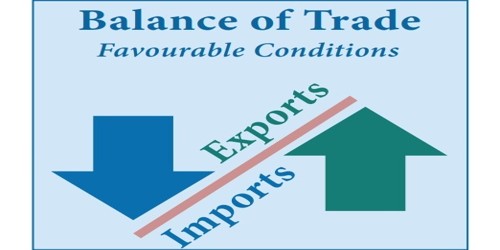
When it comes to insurance, most people think of policies that protect their homes, cars, or health. While these types of insurance are essential, they do not necessarily safeguard your income and financial stability in case you are unable to work due to illness or injury. This is where disability insurance comes into play.
Disability insurance provides income protection by offering benefits to individuals who are unable to work due to a covered disability. These benefits can help cover your living expenses and maintain your financial stability during difficult times.
Key Takeaways
- Disability insurance provides income protection in case you are unable to work due to a covered disability.
- It is an essential part of your financial plan that safeguards your income and financial stability.
- Disability insurance policies differ based on coverage, waiting periods, benefit periods, and other terms and conditions.
- It is crucial to assess your risk for disability and determine the coverage needed to protect your income.
- Regularly reviewing and updating your disability insurance policy is important to ensure it meets your changing needs.
Understanding Different Types of Insurance
Insurance is a crucial tool for protecting yourself, your loved ones, and your assets from financial risks. There are various types of insurance policies available to meet different needs, from auto insurance to business insurance. Understanding the different options and selecting the appropriate insurance coverage is essential for safeguarding your financial future.
Auto Insurance
Auto insurance protects you from financial losses if you are involved in an accident or your car is stolen. It covers damages to your vehicle, other vehicles involved in the accident, and any injuries sustained by drivers or passengers. Auto insurance policies vary widely in terms of coverage and cost, so it's important to compare options carefully to find the best fit for your needs and budget.
Home Insurance
Home insurance, also known as homeowners insurance, provides coverage for your home and personal property in the event of damage or loss caused by covered events such as fire, theft, or natural disasters. It also includes liability coverage, which protects you if someone is accidentally injured on your property. Home insurance policies vary in terms of the level of coverage and cost, so it's important to evaluate your needs and shop around for the best deal.
Life Insurance
Life insurance is designed to provide financial protection for your loved ones in the event of your death. It typically pays out a lump sum to your beneficiaries upon your passing, which can be used to cover expenses like funeral costs, outstanding debts, or living expenses. Life insurance policies vary in terms of the amount of coverage and the cost, so it's important to determine your needs and budget when selecting a policy.
Health Insurance
Health insurance provides coverage for medical expenses, including doctor visits, hospitalization, and prescription drugs. It's essential for protecting your financial stability in the event of unexpected illness or injury. Health insurance policies vary widely in terms of coverage and cost, so it's important to evaluate your needs and shop around for the best deal.
Business Insurance
Business insurance protects your company from financial losses due to events like property damage, theft, or legal claims. It can also provide coverage for employee injuries or illnesses. Business insurance policies vary widely depending on the type of business and the level of coverage needed, so it's important to consult with an insurance professional to ensure you have adequate protection in place.
"Insurance is the one purchase that you hope you never have to use, but are glad you have when you need it."
Each type of insurance policy serves a specific purpose, and having the right coverage in place can provide valuable peace of mind. Take the time to evaluate your needs and shop around for the best policy for you. Don't hesitate to consult with an insurance professional to ensure you make an informed decision.
The Basics of Disability Insurance

Disability insurance is a type of insurance coverage that provides financial protection in case you become disabled and cannot work. This insurance coverage ensures that you continue to receive an income even if you are unable to work due to a disability.
Disability insurance is a crucial part of any financial plan as it provides income protection, ensuring that you do not fall into financial instability during tough times. It is important to understand the different types of disability insurance available and the benefits they offer.
Short-Term vs Long-Term Disability Insurance Coverage
There are two main types of disability insurance coverage: short-term and long-term disability insurance. Short-term disability insurance typically provides coverage for a few months up to a year, while long-term disability insurance provides coverage for a more extended period, usually until the age of retirement.
Short-term disability insurance is beneficial if you need to take a brief leave of absence from work due to an injury or illness, while long-term disability insurance is more suitable if you become disabled for an extended period or permanently.
Disability Insurance Benefits
Disability insurance policies provide several benefits, including:
- Income replacement: Disability insurance benefits replace a portion of your lost income due to a disability, ensuring you can continue to meet your financial obligations.
- Medical expenses coverage: Some disability insurance policies provide coverage for medical expenses related to your disability.
- Survivor benefits: In the event of your death, disability insurance policies may provide a benefit to your beneficiaries.
Who Needs Disability Insurance Coverage?
Everyone who relies on their income to meet their financial obligations needs disability insurance coverage. Disability insurance is particularly important for individuals who do not have significant savings, as it provides income replacement during a difficult time.
Disability insurance is also crucial for individuals who work in physically demanding jobs, have a history of health problems, or have dependents that rely on their income. However, disability insurance coverage can be beneficial for anyone, regardless of their health or occupation.
Why You Need Disability Insurance
Disability insurance is an essential component of any financial plan, providing much-needed protection for your income in the event of unexpected illness or injury. Without adequate coverage, you could be left struggling to make ends meet and facing significant financial strain.
Income protection is critical for maintaining financial stability, especially if you are the primary breadwinner for your family. Disability insurance provides a safety net, ensuring that you can continue to pay bills and meet your financial obligations even if you are unable to work due to a disability.
Investing in disability insurance is also an investment in your peace of mind. Rather than worrying about how you will make ends meet if the unexpected happens, you can rest easy knowing that you have a safety net in place.
In short, disability insurance is an essential component of any financial plan, helping to safeguard your income and ensuring financial stability for you and your family.
Assessing Your Risk and Needs

Before selecting a disability insurance policy, it's important to assess your risk for disability and understand the coverage needed to protect your income and maintain financial stability.
Occupational risks, lifestyle factors, and personal health can all impact your likelihood of experiencing a disabling condition. For example, if your job requires physical labor, you may have a higher risk of injury and disability compared to a sedentary job.
Assessing your needs involves considering your monthly expenses, the amount of income needed to cover those expenses, and any existing savings or benefits you may have. In general, disability insurance policies provide coverage of up to 60% of your pre-disability income, so you'll want to ensure that the coverage amount meets your needs.
Factors to Consider
When evaluating your risk and assessing your coverage needs, consider the following factors:
- Your occupation and work environment
- Your age and overall health
- Your family's financial needs
- Your existing savings and benefits
By taking a comprehensive look at these factors, you can gain a better understanding of the coverage needed to protect your income and maintain financial stability in the event of a disability.
Choosing the Right Disability Insurance Policy
Choosing the right disability insurance policy is crucial to ensuring you have the coverage you need to protect your income and maintain financial stability. Here are some factors to consider when selecting a policy:
- Policy Terms: Carefully review the terms of the policy to understand what is covered and what is not. Make sure you are aware of any exclusions and limitations to your coverage.
- Coverage Limits: Determine the coverage limit you need, which is the maximum amount you will receive in benefits. Consider factors such as your income, expenses, and debt when deciding on a coverage limit.
- Premiums: Premiums are the amount you pay for your policy. Make sure the premiums are affordable, and you can continue to pay them throughout the life of the policy. Compare multiple insurance quotes to find a policy that fits your budget.
It's important to remember that disability insurance policies can vary widely in their terms and coverage. Be sure to read the fine print and ask questions if you are unsure about any aspect of the policy.
Understanding Policy Riders
Policy riders are additional provisions that can be added to a disability insurance policy to provide additional coverage or benefits. Some common riders include:
| Rider | Description |
|---|---|
| Catastrophic Disability Rider | Provides additional benefits if you become severely disabled and are unable to perform basic activities of daily living. |
| Future Increase Option Rider | Allows you to increase your coverage in the future without undergoing additional medical underwriting. |
| Cost of Living Adjustment Rider | Increases your benefit payments each year to keep pace with inflation. |
Consider adding riders to your policy if they align with your needs and financial situation. Keep in mind that riders can increase your premiums, so factor that into your decision-making process.
Applying for Disability Insurance

When you've evaluated your risk for disability and determined the coverage you need, it's time to apply for disability insurance. The process of applying for disability insurance is generally straightforward, but it's essential to be prepared to provide detailed information about your health and employment history.
The following are the steps you can expect to follow when applying for disability insurance:
- Choose an insurance company and policy that meets your needs.
- Fill out the application, providing accurate and detailed information about your medical history, occupation, and income.
- Undergo medical underwriting, which may include providing medical records and completing a medical exam.
- Wait for a decision from the insurance company regarding your application.
It's important to note that the underwriting process can take several weeks or even months to complete. Additionally, it's common for insurance companies to request additional information or clarification during the underwriting process.
To improve your chances of approval, ensure that you provide accurate and detailed information on your application. Be prepared to answer questions from the insurance company and provide additional information as requested. Remember that a disability insurance policy is a long-term investment in your financial stability, so take the time to choose a policy that meets your needs and provides the coverage you require.
Understanding Disability Insurance Coverage
Disability insurance provides coverage for a portion of your income if you become disabled and unable to work. To fully understand your policy and what is covered, there are a few important terms to know:
| Term | Description |
|---|---|
| Elimination period | The waiting period before benefits begin. This typically ranges from 30 to 180 days. |
| Benefit period | The length of time benefits will be paid out. This can range from a few years to your entire lifetime. |
| Definition of disability | The criteria used to determine if you are eligible for benefits. There are two main types of definitions: "Own occupation" which considers you disabled if you can't work your own job and "Any occupation" which considers you disabled if you can't work any job. |
It's important to carefully review and understand these terms when selecting a disability insurance policy. Your coverage and benefits will be determined based on these factors, so it's crucial to choose a policy that fits your needs and occupation.
Many policies also have additional optional features that can enhance your coverage. These may include:
- Cost of living adjustments
- Partial disability coverage
- Non-cancelable and guaranteed renewable policies
- Residual disability coverage
It's important to carefully consider these options and discuss them with your insurance agent to ensure you have the best coverage for your needs.
Disability Insurance and Your Occupation
If you have a disability insurance policy, it is important to understand how your occupation can affect your coverage. Some occupations, such as those in construction or manual labor, have a higher risk of injury than others.
When applying for disability insurance, it is essential to provide accurate information about your occupation and any hazardous duties involved in your job. This will ensure that you receive appropriate coverage that reflects the nature of your work.
Occupation-specific coverage may include benefits for partial disabilities or special provisions for certain industries. For example, a surgeon may need a policy that covers specific hand-related disabilities that could impact their ability to work.
When reviewing your disability insurance policy, make sure to check if your coverage is occupation-specific and if it adequately covers any risks associated with your job. If you switch careers or change job duties, you may need to update your policy to ensure continued coverage.
"Occupation-specific coverage may include benefits for partial disabilities or special provisions for certain industries."
Supplementing Disability Insurance with Other Policies
While disability insurance is an essential component of your financial plan, it may not always cover all your needs. Supplementing your disability insurance with other policies, such as life insurance and health insurance, can provide extra protection and peace of mind. Let's explore why.
Life Insurance
Life insurance is designed to provide a lump sum payment to your beneficiaries in the event of your death. While this may not seem relevant to disability insurance, the reality is that a disabling injury or illness can also lead to death. Having life insurance as a supplement to your disability policy ensures that your loved ones will be taken care of should the worst happen.
Additionally, if you have a long-term disability, you may be unable to work and contribute to your retirement savings. A life insurance policy can help replace lost retirement savings and ensure your loved ones are financially secure.
Health Insurance
Health insurance is an important supplement to your disability insurance policy. If you become disabled, you will likely incur medical expenses in addition to a loss of income. Health insurance can help cover the costs of medical treatment and care, ensuring that you receive the care you need without adding to your financial burden.
Furthermore, if your disabling condition is due to an illness or injury that is covered by your health insurance, it may be easier to establish your disability claim and receive benefits from your disability insurance policy.
When considering supplemental policies, it is essential to review your options carefully to ensure they align with your needs and budget. A financial advisor can help you evaluate your options and determine what best suits your situation and goals.
Reviewing and Updating Your Disability Insurance
Once you have obtained disability insurance, it's important to regularly review and update your policy. Life changes and circumstances can impact your coverage needs, and it's essential to ensure that your policy continues to provide adequate protection for you and your family.
Consider reviewing your disability insurance policy in the following situations:
- When you experience a change in income or job status
- When you get married or divorced
- When you have a child or adopt
- When you purchase a new home or vehicle
- When you experience a change in health status
When reviewing your policy, start by assessing your current coverage needs. Consider your income, living expenses, debt obligations, and any other financial responsibilities you may have. Also, pay attention to the policy's terms and conditions, such as the elimination period and benefit period.
After reviewing your policy, you may find that you need to make changes to your coverage. For example, you may need to increase your benefit amount to ensure that you are adequately protected. Alternatively, you may need to adjust your elimination period or benefit period to better align with your financial goals and needs.
To update your disability insurance policy, contact your insurance provider and request a review. They will guide you through the process and help you make any necessary changes to your policy. Remember, having appropriate coverage helps ensure your financial stability and protects your income if you become disabled.
Conclusion
Disability insurance is an essential part of your financial plan, providing income protection and financial stability when you need it most. We hope this article has given you a comprehensive understanding of disability insurance and its importance.
Remember, disability can strike anyone at any time, and without adequate coverage, you could be left struggling to pay bills and maintain your standard of living. Assessing your risk and needs, choosing the right policy, and regularly reviewing and updating your coverage can help you ensure that you are adequately protected.
If you have any questions about disability insurance or need assistance selecting a policy, be sure to consult with a licensed insurance professional. They can help you navigate the process and find the coverage that best meets your needs.
Protecting Your Income and Financial Stability
Whether you work full-time, part-time, or run your own business, disability insurance is an important investment in your financial future. By providing income protection and financial stability, disability insurance can help you weather a difficult financial storm and focus on your recovery. Don't wait until it's too late - assess your needs and take action today to protect your income and financial stability with disability insurance coverage.
FAQ
What is disability insurance?
Disability insurance is a type of insurance coverage that provides financial protection in the event that you become disabled and are unable to work. It replaces a portion of your income and helps ensure that you can still meet your financial obligations.
Why do I need disability insurance?
Disability insurance is important because it safeguards your income and financial stability. In the event of a disability, it provides a source of income to cover your living expenses and maintain your standard of living.
How does disability insurance work?
Disability insurance typically pays a percentage of your pre-disability income in the form of monthly benefits. The exact amount and length of coverage will depend on the terms of your policy, including benefit periods and waiting periods.
Who should have disability insurance?
Everyone who relies on their income to meet their financial needs should consider having disability insurance. Whether you're a working professional, a business owner, or a stay-at-home parent, disability insurance can provide vital financial protection in the event of a disability.
How do I assess my risk for disability?
Assessing your risk for disability involves evaluating factors such as your occupation, health history, lifestyle, and financial obligations. By understanding these factors, you can determine the likelihood of experiencing a disability and the amount of coverage you may need.
What factors should I consider when choosing a disability insurance policy?
When selecting a disability insurance policy, it's important to consider factors such as the terms and conditions of the policy, coverage limits, waiting periods, benefit periods, and premiums. It's also wise to obtain insurance quotes from different providers to compare options.
How do I apply for disability insurance?
Applying for disability insurance typically involves completing an application, providing information about your medical history and occupation, and sometimes undergoing a medical examination. It's important to accurately and fully disclose all relevant information to increase your chances of approval.
What does disability insurance coverage include?
Disability insurance coverage typically includes a percentage of your pre-disability income, which is paid out in the form of monthly benefits. The specific terms and conditions of coverage, like waiting periods and benefit periods, vary depending on the policy you choose.
How does disability insurance differ based on occupation?
Disability insurance can vary based on your occupation. Some policies offer occupation-specific coverage, taking into account the risks and challenges associated with certain jobs. It's important to understand how your occupation may affect your disability insurance coverage and potential benefits.
Can I supplement my disability insurance with other policies?
Yes, you can supplement your disability insurance with other policies like life insurance and health insurance. These additional coverages can provide further financial protection and help ensure that you are covered in various circumstances.
How often should I review and update my disability insurance policy?
It is important to regularly review and update your disability insurance policy to ensure that it still meets your needs. Life changes, such as marriage, having children, or changing occupations, can impact your coverage requirements. It's a good idea to review your policy annually or whenever there are significant changes in your life.








